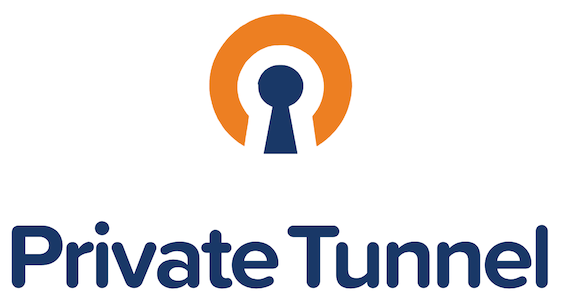Are you ready to take on the challenge of running a half marathon? Whether you're a seasoned runner or a complete beginner, training for a half marathon in just 12 weeks is an achievable goal. This comprehensive guide will walk you through the steps, from setting your goals to crossing the finish line. So, lace up your running shoes and let's get started!
Setting Your Goals
Before you embark on your 12-week training journey, it's crucial to set clear and realistic goals. Define why you want to run a half marathon. Is it for personal achievement, fitness, or for a charitable cause? Establishing your purpose will keep you motivated throughout your training.
Goal 1: Determine Your Target Time
Decide on a target time for completing the half marathon. This will help you structure your training plan accordingly. If you're a beginner, focus on finishing the race, and if you're more experienced, aim for a personal best.
Creating a Training Plan
Week 1-2: Building a Base
Start your training gradually. Begin with short runs and gradually increase your mileage. Focus on establishing a strong foundation to prevent injuries later on.
Week 3-6: Increasing Distance
During this phase, you'll steadily increase your weekly mileage. Include a mix of easy runs, tempo runs, and long runs to build endurance and speed.
Week 7-10: Fine-Tuning
Refine your training by incorporating hill workouts, speed intervals, and strength training exercises. This will enhance your overall performance and prepare you for race day.
Week 11-12: Tapering
In the final weeks leading up to the race, reduce your mileage to allow your body to recover. Focus on rest, nutrition, and mental preparation.
Nutrition and Hydration
Proper nutrition is essential for training and race day success. Fuel your body with a balanced diet that includes carbohydrates, proteins, and healthy fats. Stay hydrated, especially during long runs, and experiment with different foods to find what works best for you.
Gear and Apparel
Invest in a good pair of running shoes that provide the necessary support and comfort. Consider moisture-wicking clothing to prevent chafing and blisters. Don't forget accessories like a GPS watch and comfortable socks.
Mental Preparation
Running a half marathon is not just a physical challenge; it's a mental one too. Visualize your success, practice positive self-talk, and stay motivated by joining a running group or finding a training partner.
Race Day Tips
Pre-Race
On the big day, arrive early, eat a light meal, and warm up with some light stretching and jogging. Stay relaxed and trust your training.
During the Race
Pace yourself, stay hydrated at aid stations, and enjoy the experience. Remember, it's not just about the finish line; it's about the journey.
Post-Race
After crossing the finish line, celebrate your achievement and take time to cool down with gentle stretches. Refuel with a balanced meal and hydrate to aid recovery.
Training for a half marathon in 12 weeks is a challenging but rewarding journey. By setting clear goals, creating a structured training plan, and focusing on nutrition, gear, and mental preparation, you can achieve success on race day. Remember, consistency and determination are your greatest allies in this endeavor.
FAQs
Can I train for a half marathon as a beginner?
Absolutely! With the right training plan and dedication, beginners can successfully complete a half marathon in 12 weeks.
How many days a week should I train?
Aim for 4-5 days of running and 1-2 days of rest or cross-training to allow your body to recover.
What should I eat before a long run?
Consume a balanced meal rich in carbohydrates and low in fiber about 2-3 hours before your long run to provide sustained energy.
How do I prevent injuries during training?
Ensure you have proper running shoes, warm up before each run, and listen to your body. Don't push through pain, and consider consulting a physiotherapist if needed.
Can I walk during the race if needed?
Yes, many participants walk during parts of a half marathon. It's important to listen to your body and do what feels comfortable.
Setting Your Goals (Week 1)
Defining Your Half Marathon Goal
Before you lace up your running shoes, it's essential to establish your specific goals for the race. Do you want to finish within a certain time frame, or is completing the race your primary objective? Knowing your goal will shape your training plan.
Assessing Your Current Fitness Level
To determine where you stand, you should start by assessing your current fitness level. This involves evaluating your running experience, endurance, and overall health.
Creating a Training Schedule
Based on your goal and fitness assessment, it's time to create a training schedule for the next 12 weeks. Your plan should include a mix of running days, rest days, and cross-training activities.
Building Your Endurance (Weeks 2-5)
The Importance of Long Runs
One of the key components of half marathon training is the long run. During this phase, gradually increase your long run distance each week to build endurance.
Incorporating Interval Training
Interval training helps improve your speed and stamina. Include sessions of high-intensity intervals to boost your overall performance.
Cross-Training
Don't forget to cross-train to prevent overuse injuries. Activities like swimming, cycling, or yoga can complement your running routine.
Strengthening Your Body (Weeks 6-8)
Core Strength and Stability
A strong core is crucial for maintaining good running form and preventing injuries. Incorporate core-strengthening exercises into your routine.
Upper Body Conditioning
While running primarily engages your lower body, maintaining upper body strength can help with posture and balance during long runs.
Fine-Tuning Your Training (Weeks 9-10)
Listening to Your Body
By this stage, you should be in tune with your body's signals. Pay attention to any aches or pains and adjust your training accordingly.
Nutrition and Hydration
Proper nutrition and hydration are vital for peak performance. Consult a nutritionist to create a plan that suits your training needs.
The Final Push (Weeks 11-12)
Tapering Off
As race day approaches, reduce your training intensity to allow your body to recover and prepare for the half marathon.
Mental Preparation
Running a half marathon is not only a physical challenge but a mental one as well. Develop strategies to stay motivated and focused during the race.
Training for a half marathon in 12 weeks is a rewarding journey that requires dedication and hard work. By following a well-structured training plan, listening to your body, and staying mentally strong, you can achieve your goal of completing a half marathon. Remember, consistency is key, and the sense of accomplishment at the finish line will be worth every step of the way.
FAQs
Can I train for a half marathon if I'm a beginner runner?
Absolutely! With the right plan and dedication, beginners can successfully train for a half marathon in 12 weeks.
How many days a week should I run during training?
Your training plan should include 3-4 days of running, with rest and cross-training on the other days.
Is it essential to have a running coach for half marathon training?
While not mandatory, having a running coach can provide valuable guidance and support throughout your training journey.
What should I eat before a long run?
Before long runs, focus on carbohydrates for energy and lean proteins for muscle repair. Avoid heavy or greasy foods.
How can I prevent injuries during training
Proper warm-up, cool-down, stretching, and listening to your body are key to preventing injuries during half marathon training.










 English (US) ·
English (US) ·